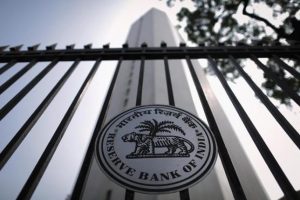 Janjivan Bureau / New Delhi : The Monetary Policy Committee (MPC) of the Reserve Bank of India (RBI) has decided to increase the policy repo rate by 25 basis points.
Janjivan Bureau / New Delhi : The Monetary Policy Committee (MPC) of the Reserve Bank of India (RBI) has decided to increase the policy repo rate by 25 basis points.
The MPC reiterates its commitment to achieving the medium-term target for headline inflation of 4 per cent on a durable basis.
On the basis of an assessment of the current and evolving macroeconomic situation at its meeting on Wednesday, the Monetary Policy Committee (MPC) decided to increase the policy repo rate under the liquidity adjustment facility (LAF) by 25 basis points to 6.5 per cent.
Consequently, the reverse repo rate under the LAF stands has been adjusted to 6.25 per cent, and the marginal standing facility (MSF) rate and the bank rate to 6.75 per cent.
The RBI said in a statement that the decision of the MPC is consistent with the neutral stance of monetary policy in consonance with the objective of achieving the medium-term target for consumer price index (CPI) inflation of 4 per cent within a band of +/-2 per cent, while supporting growth.
On the risks to the economy, the MPC noted that domestic economic activity had continued to sustain momentum and the output gap had virtually closed. However, uncertainty around domestic inflation needed to be carefully monitored in the coming months. In addition, recent global developments raise some concerns.
“Rising trade protectionism poses a grave risk to near-term and long-term global growth prospects by adversely impacting investment, disrupting global supply chains and hampering productivity. Geopolitical tensions and elevated oil prices continue to be the other sources of risk to global growth,” the RBI cautioned.
The RBI said the inflation outlook is likely to be shaped by several factors. The increase in MSPs for kharif crops, which is much larger than the average increase seen in the past few years, will have a direct impact on food inflation and second round-effects on headline inflation.
The overall performance of the monsoon so far augurs well for food inflation in the medium-term. Crude oil prices have moderated slightly, but remain at elevated levels. The Centre has reduced Goods and Services Tax (GST) rates on several goods and services. This will have some direct moderating impact on inflation, provided there is a pass-through of reduced GST rates to retail consumers.
RBI hikes repo rate by 25 basis points to 6.5%
ADVERTISEMENT

















